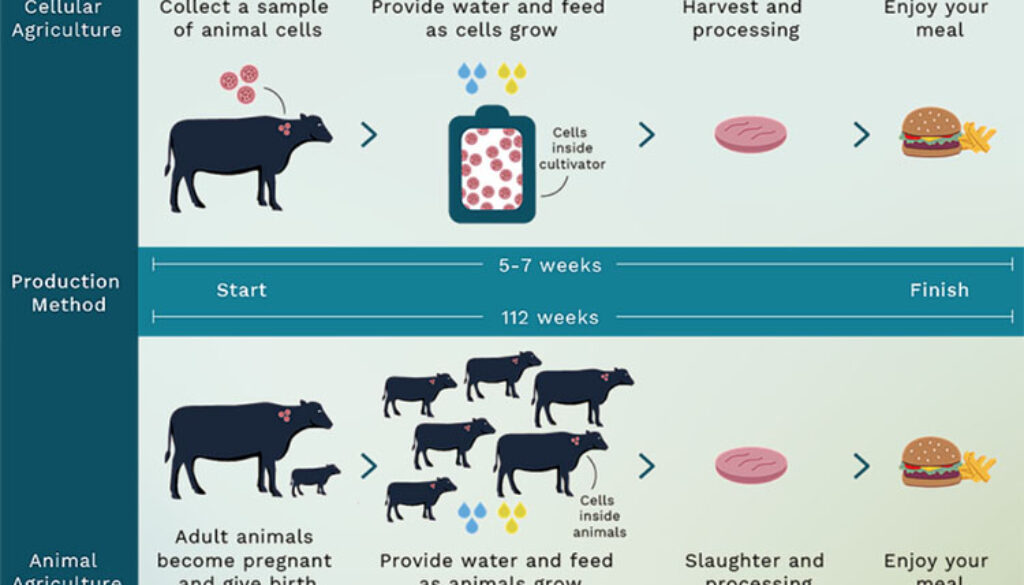Real meat, but without the land, water, and carbon cost
Reposted from Coalition Footprint:
In a historic first for the U.S., the Food and Drug Administration has certified that Upside Foods chicken made from cell cultures is safe to eat.
Nearly two years after Singapore approved the Good Meat company’s cellular chicken for sale at select restaurants in the Asian foodtech hub, and Supermeat opened a restaurant in Israel serving cultured chicken on its menu, U.S. buyers will soon get the chance to taste a potential future of food for themselves.
California-based Upside Foods is the first company to receive a pre-market safety clearance from the U.S. Food and Drug Administration (FDA). While the pending facility for Upside Foods will need to meet U.S. Department of Agriculture (USDA) and FDA requirements, the agency said it has “no further questions at this time” about the meat’s safety.
Issued on November 16, the approval could open the door for other cultured meat in the U.S. including the FootPrint Coalition-backed salmon biotechnology company WildType.
Cultured meat is made from cell samples taken from animals. It’s different from plant-based meat, like that of popular brands Impossible Foods and Beyond Meat and FPC brands MyForest Foods and Motif FoodWorks.
Using muscle samples, stem cells from animals, and fats animal tissue is “cultivated” from tiny samples into large portions of meat. In Upside’s case, the startup uses chicken’s primary cells of a fertilized egg to create “The fried chicken chicken’s dream about.
Different from plant-based, companies like Upside and Wild Type offer diners the option of real meat without the requirement of animal death or the meat industry’s environmental consequences and contributions to the climate crisis. The meats also have lower risk of contamination from bacteria because they’re not slaughtered. It is still animal meat, which means the target audience isn’t the vegetarians and vegans of the world, but their carnivorous counterparts.
The United Nations estimates the meat industry accounts for nearly a fifth of our total greenhouse gas emissions, making it one of the most polluting industries in the world, especially in the US, one of the planet’s most meat-consuming countries.
According to a study published at the University of Oxford, cultivated meat could reduce greenhouse gas emissions by 96% compared to conventionally produced meat.
Additionally, switching to cultured meat can cut our water consumption between 82 and 96%, depending on the animal. It can also reduce the quantity of land dedicated to the meat industry, which is the main driver of tropical deforestation and land degradation.




